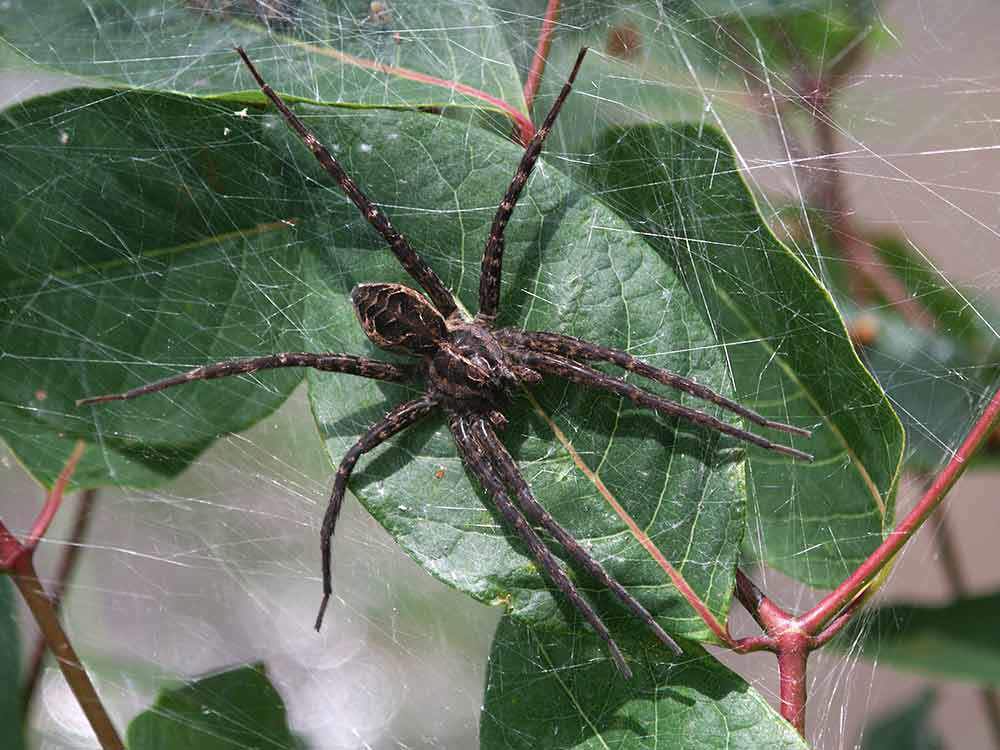Fishing Spider Dolomedes

Identification
Color: Brownish gray with black and light brown markings
Size: 1/4 – 1/2” (male); 3/5 – 1” (female)
Legs: 8
Antennae: No
Shape: Stout body with long bristly legs
Region: Found throughout the U.S.
What is a Fishing Spider? (Dolomedes)?
Fishing spiders (also known as fisher spiders) get their name due to their unique hunting style. These spiders will position themselves near the edge of a water source. Once the spider detects their prey, they will run across the surface of the water to snag it. While their appearance may seem alarming, fishing spiders rarely bite unprovoked and they tend to avoid humans.
Most fishing spider species live near bodies of water, although some can be found in wooded areas instead. Fishing spiders hibernate under stones, loose bark and occasionally man-made structures. Indoors, fishing spiders may be found in garages or basements away from foot traffic.
To prevent fishing spiders from entering the home, seal cracks on the exterior of the structure and repair screens on doors and windows. Install door sweeps on exterior entrances.
Most species of fishing spiders hunt their prey by waiting at the edge of a water source and running across the water’s surface to capture unsuspecting prey once they sense it. However, some also can take advantage of the water’s surface tension, and walk on the surface of water and catch small fish and aquatic insects. Mature fishing spiders can be found from early May to September. Female fisher spiders guard young spiderlings in nursery webs—sometimes 1,000 spiderlings at a time!
While fishing spiders can bite, they tend to avoid humans and will flee at the tiniest movement. Fishing spider bites do contain venom but are typically as severe as a wasp sting. However, some people may experience a more severe reaction if they are sensitive to spider venom.
If you suspect a fishing spider infestation in your home, the best course of action is to contact a licensed pest control professional. They will conduct a thorough inspection to identify the full extent of the problem. Once the situation is properly identified, the appropriate control measures can be taken.
You can find a certified pest professional near you with the helpful zip code search below.
